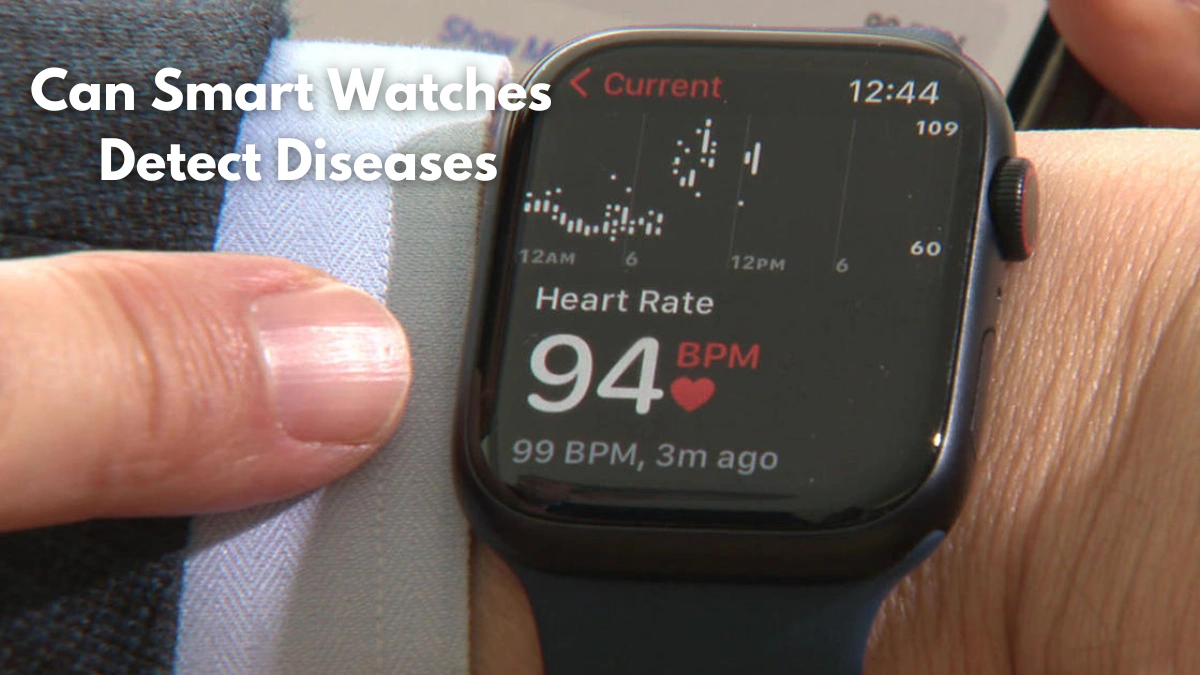Smartwatches have transformed dramatically, now offering far more than just timekeeping. Today, they’re like mini health companions on our wrists, tracking everything from how many steps we take to how well we sleep. With sensors that monitor heart rate, blood oxygen, and even stress levels, these devices have become a big part of everyday life. Wearable tech, especially in healthcare, is growing fast, giving us more control over our well-being. But beyond just tracking fitness, there’s a bigger question: Can smartwatches actually help detect diseases before we even know something’s wrong?
How Do Smartwatches Work?
Smartwatches have become an essential part of modern life, fitness tracking, and health monitoring rolled into one sleek device. These wearable gadgets do more than just tell time. They collect valuable health data and provide insights that can help improve your lifestyle. But how exactly do smartwatches work? Let’s see the basic functionalities that make these devices so popular.
- Heart Rate Monitoring
One of the key features of a smartwatch is heart rate monitoring. Using optical sensors, often located on the back of the device, a smartwatch can measure your pulse in real time. These sensors emit light that penetrates your skin, and based on the reflection from the blood flow, the watch estimates your heart rate. This is particularly useful during exercise or to monitor overall health throughout the day. - Step Counting
Smartwatches also function as pedometers, counting the number of steps you take each day. Accelerometers built into the device detect movement and track how many steps you’ve walked or run. The data is then processed into distance traveled and calories burned, giving users a clear picture of their daily physical activity. - Sleep Tracking
Many smartwatches offer sleep tracking features, helping users understand the quality of their rest. By using motion sensors and heart rate monitors, the watch can detect when you fall asleep, how much time you spend in different sleep stages, and when you wake up. Some models even analyze breathing patterns to offer a more detailed sleep report. - Continuous Health Data Collection
Smartwatches collect health data continuously, allowing you to monitor changes in your body throughout the day and night. Whether it’s checking your heart rate during a workout, analyzing your sleep patterns, or tracking your daily steps, the data is synced with an app on your smartphone, where you can view trends and set goals to improve your fitness and well-being. - Other Features
In addition to health monitoring, smartwatches often include features like GPS tracking, notifications for calls and messages, and even mobile payments. Many new models also come with features like ECG monitoring, blood oxygen saturation levels, and stress tracking.
Can Smart Watches Detect Serious Health Conditions?
Smartwatches are transforming personal health monitoring by offering real-time insights into various serious health conditions. These devices provide a wealth of data that can aid in early detection and prevention. Although still in development, future advancements in blood sugar monitoring could make smartwatches even more indispensable for managing diabetes. While they aren’t a replacement for professional medical diagnosis and treatment, smartwatches are playing an increasingly important role in the future of health management. Here are some early detection and management capabilities:
- Heart Disease: AFib Detection
Many smartwatches, like the Apple Watch, can monitor heart rhythms and detect Atrial Fibrillation (AFib), a condition that increases the risk of stroke. Using an ECG feature, they can alert users to irregular heartbeats, enabling early medical intervention. - Diabetes: Blood Sugar Monitoring
Innovations in wearable technology may soon allow smartwatches to monitor blood sugar non-invasively. Companies like Apple and Fitbit are working on sensors to revolutionize diabetes management, eliminating the need for finger-prick tests. - Sleep Apnea: SpO2 and Sleep Tracking
Devices like the Fitbit Sense track blood oxygen (SpO2) and sleep patterns to flag potential signs of sleep apnea. These insights help users identify abnormal breathing patterns during sleep. - Mental Health: Stress and HRV Monitoring
Smartwatches track heart rate variability (HRV) and stress levels, offering insights into mental well-being. Though not a diagnostic tool, they help users manage stress and identify potential anxiety triggers.
Limitations of Smartwatches in Healthcare: What You Need to Know
Smartwatches have become incredibly popular for tracking our health, whether it’s keeping an eye on our heart rate, monitoring sleep, or counting our steps. However, while these devices offer a convenient way to stay on top of our well-being, they have their limitations. It’s important to understand that smartwatches are not a replacement for medical devices, and relying solely on them could lead to misunderstandings about your health.
One major limitation is that smartwatches, no matter how advanced, can’t match the accuracy of medical-grade equipment. The sensors in these devices are great for giving you general insights, but they aren’t designed to diagnose medical conditions. For example, while your smartwatch may alert you if your heart rate is irregular, it doesn’t mean you have a serious condition like atrial fibrillation. Medical devices, such as ECG machines, are still necessary to confirm and accurately diagnose such issues. So, it’s best to think of your smartwatch as a supportive tool, not a substitute for professional medical equipment.
Conclusion
Smartwatches have great potential to help detect health issues early by monitoring things like heart rate, oxygen levels, and sleep. They give users helpful insights into their health, which can alert them to anything unusual. However, it’s important to remember that while these devices are useful, they have their limits. Staying informed about what smartwatches can and can’t do is crucial. Although they can be a helpful tool, they shouldn’t replace visits to your doctor. If you notice any health concerns, always consult with a healthcare professional for proper advice and treatment.

